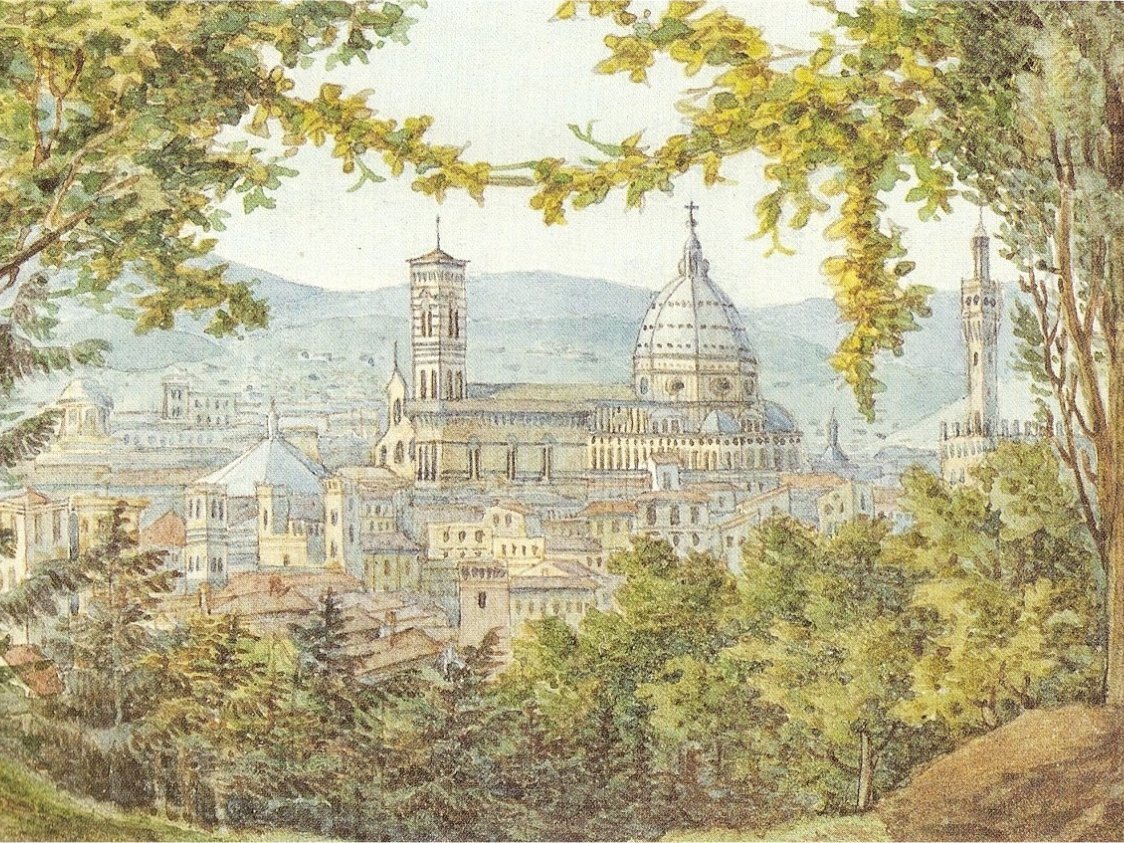
Music of the Romantic period: It is a journey to the depths of the soul, a dream of longing.
“The music of the Classical period is like the starry heavens. We cannot reach the stars; we cannot even envy them. But the music of the Romantic period is our music, at once fulfillment and boundless yearning [...]. But the Romantic era, as a symbol of cleavage and of the will to overcome this cleavage, is an eternal principle of art.” That is how the musicologist Alfred Einstein summarizes his observations on Romanticism in music.
He thus bridges the gap between Franz Schubert and Richard Wagner, knowing full well that his contemporaries had already viewed Ludwig van Beethoven as the incarnation of Romanticism and that at least one generation, if not more, framed late Romanticism as an afterthought – possibly well into the 20th century. E. T. A. Hoffmann described music as “the most romantic of all the arts” – it “opens to man an unknown realm [...] to surrender himself to an inexpressible longing”, thus showing how strongly even contemporary witnesses sensed that something new was beginning in music, that they were hearing a fundamental change.
The sound of transience
This change can be heard in the interplay of two compositions, Carl Maria von Weber’s Oberon Overture and Franz Schubert’s “Great” C major Symphony, with which Kirill Petrenko and the Berliner Philharmoniker open the 2021/22 season.
Already in the first bars, both works begin with unaccompanied horns, and the horn repeatedly emerges from the orchestra. It is not by chance that two composers use this instrument so prominently in two works composed at almost the same time.
The horn symbolically represents the new directions of Romanticism and is itself a symbol of a bundle of meanings. The ancient “hunting horn” is a truly eloquent description: at that time, the associations extended from the sonorous signal of the hunt and the forest to unspoiled nature, vast distances and universal human yearning. The mellow, open tone of the horn contributed substantially to these associations; it can sound like a note wafting from afar or an echo of itself and represents the inherent transience of music with its blurred contours.
Supremacy of Beethoven
Weber and Schubert, born only a little over a decade apart, were acquainted with each other, almost friends. Their paths crossed several times. They both belonged to the first generation of composers who followed Ludwig van Beethoven and had to judge themselves by his standard. “Who can do anything after Beethoven?” Schubert had asked himself as he tried to compose a symphony again after several failed attempts.
Perhaps he wanted to encourage himself rather than be overcome with awe; in any case, he then found – in a kind of inner “opposition to the supremacy of Beethoven”, as the conductor and musicologist Peter Gülke phrased it – something that Beethoven had not done yet. In his conversations with Gülke, published in book form, Alfred Brendel contrasts the “rigid” composer Beethoven with the “elastic” Schubert. For Schubert, life is not “mastered, it happens.” Music follows the course of events, as it were, and thus develops a momentum of its own.
Interior views
The music of Romantic composers is not a call to action, it is an invitation to dream. It no longer has an external effect, but rather internal. Instead of a world view, Weber and Schubert composed interior views; their works are journeys to the depths of the soul. Between standstill and expansion, the “heavenly lengths” that Robert Schumann admired as new and unprecedented appear in the C major Symphony. “Stay yet a while, you are so fair”: Goethe’s moment spreads over hundreds of bars – an expression of the boundless realm of fantasy that one plunges into, in which new perspectives constantly develop from a wealth of experiences – as in a kaleidoscope.
Weber, on the other hand, puts out his feelers in every direction, always manages to reflect on human beings in the wide range of subject matter from which he fashions romantic operas or humorous Singspiele, and everything – whether a stage work or a piano sonata – becomes a scene for him. Just as the Romanticists indulged in dreaming in their own very different ways and made the soul transparent, the contrast with reality, in which bureaucracy, surveillance and industrialization alienated people from their fantasies, had to become stronger: that is the “cleavage” Einstein refers to. The realization that inside and outside are becoming increasingly incompatible can lead to a catastrophic collapse like the one that occurs in the second movement of Schubert’s Symphony.
Romanticism and the present
The score is his Bible when making music, Kirill Petrenko says in in Close-up: Berliner Symphonie, the first instalment of a new film series for young audiences. But the score requires interpretation. Comments of composers, observations of contemporary witnesses, documents from the era can help in that regard. The historical distance between the past and today must always be taken into account as well. That is why the same classical works sound somewhat different in every generation. Now, in a time of profound upheaval, Petrenko conducts music of Schubert with the Berliner Philharmoniker for the first time. Einstein’s idea of the “Romantic era as a symbol of cleavage, and of the will to overcome this cleavage”: there is still much to discover about the present day in the music of this period.

Franz Schubert: Music like an Infinity Symbol
His music can suspend all sense of time, as if, while exploring the streets of a large city, you gradually lose yourself in the moment.

Felix Mendelssohn as traveller
Mendelssohn went on a three-year educational trip in his early twenties and brought back a great deal of inspiration for his later works.

The Springtime of Love
For Robert Schumann, the early years of his marriage to Clara Wieck were a time of happiness and exuberant creativity. Some of his finest works date from this period.
